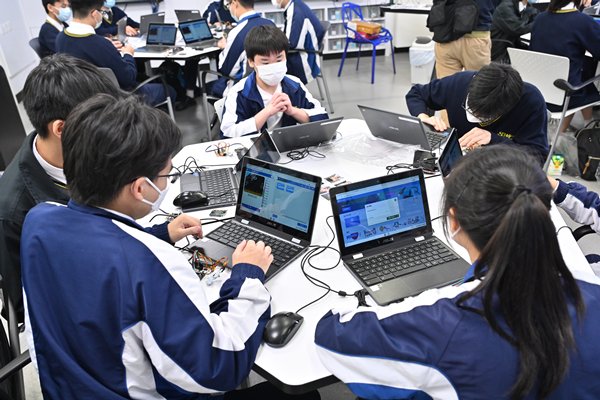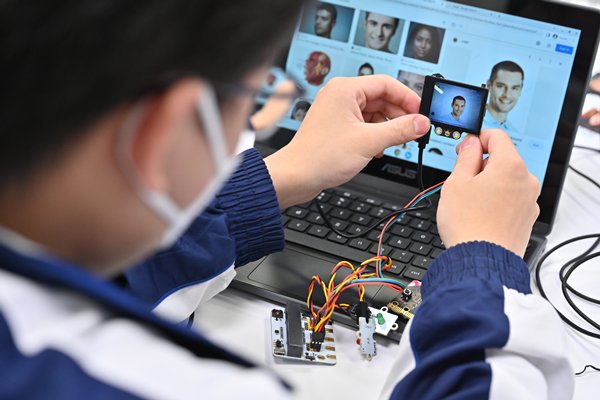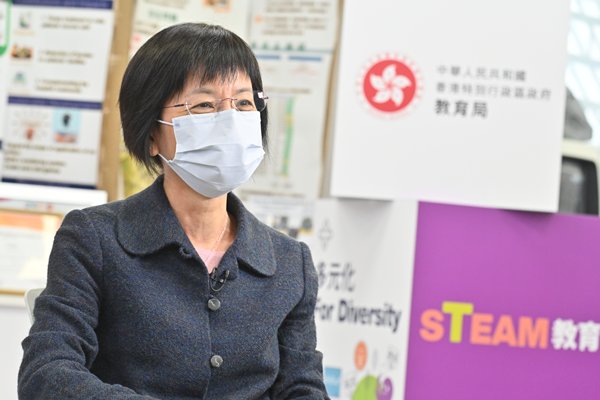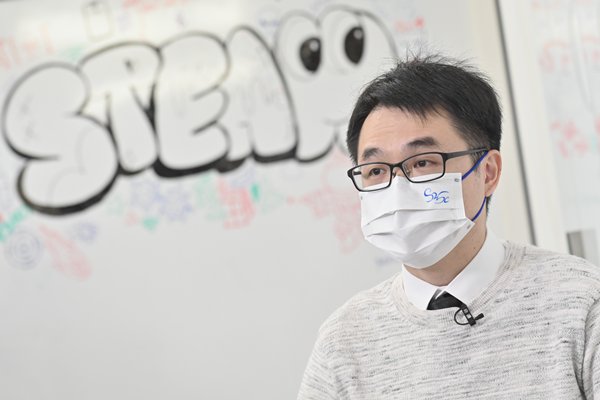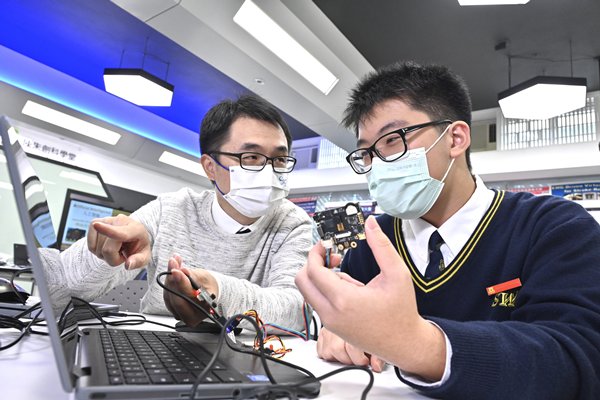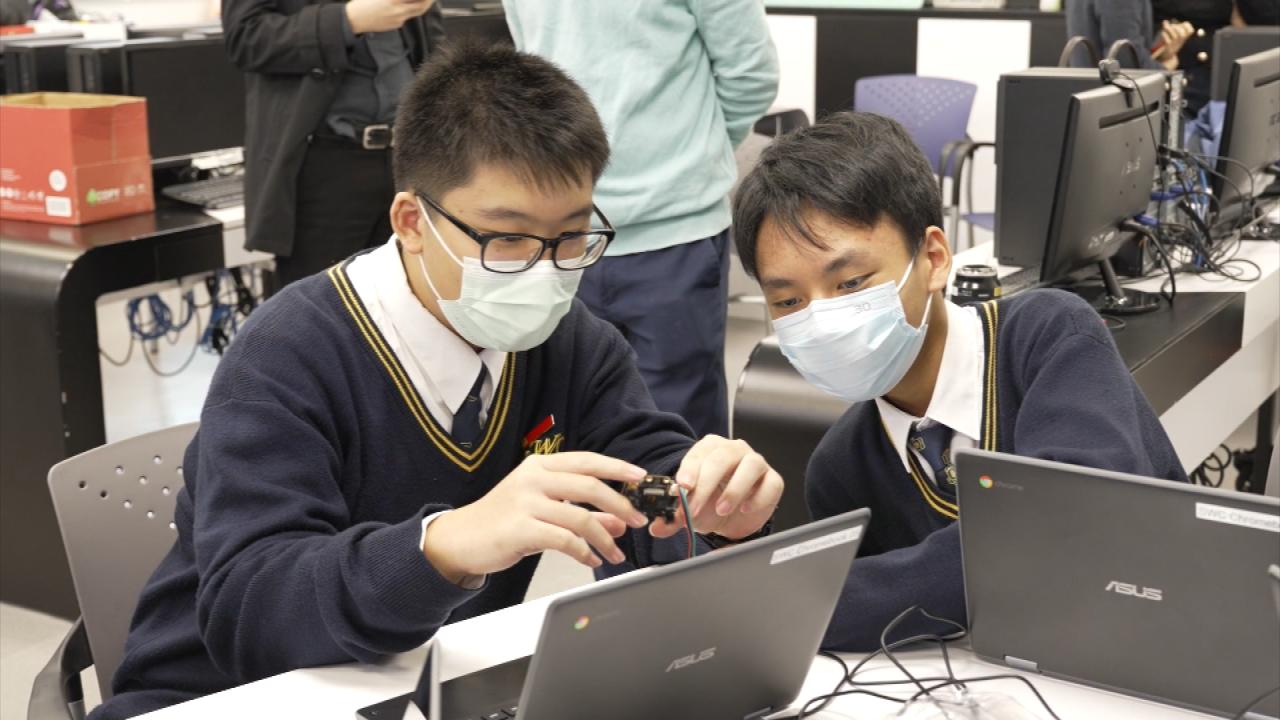Bringing AI into classrooms
Artificial intelligence (AI) is being hailed as the new frontier in technology and the Education Bureau is wasting no time to nurture Hong Kong’s next generation of AI talent. To do this, it will launch in phases the Module on Artificial Intelligence for Junior Secondary Level in the first half of this year for schools to adopt before the 2024-25 academic year.
The module covers the basic concepts of AI, ethics, computer vision, computer speech, virtual reality, robotics, as well as the impact of AI on society. Six to seven lessons will be respectively added to the curriculum of Secondary 1 to 3 students.
Education Bureau Principal Assistant Secretary (Curriculum Support) Edith Tse said the module can promote AI education in a more comprehensive and systematic way.
“AI is now a very hot topic. By incorporating this element into our education, students will understand the impact of innovation & technology (I&T) in improving daily life and promoting social and economic development,” she said.
For primary schools, the Enriched Module on Coding Education for Upper Primary Level will be launched.
The module covers basic coding concepts and implementation of computational thinking, including algorithms. The bureau hopes this will enable students to master and apply coding skills to different contexts, with a view to enhancing their computational thinking and problem-solving abilities.
The module will be launched in phases in the first half of 2023. The bureau will also provide professional training for teachers.
Minds-on, hands-on
In 2015, the Office of the Government Chief Information Officer identified several secondary schools that were outstanding in information technology (IT) education to run enriched IT classes.
Christian Alliance SW Chan Memorial College was one of eight schools chosen to provide intensive IT training to students.
A class of Secondary 4 students were taught to apply their programming skills to build an AI anti-epidemic system, which could detect whether a person was wearing a mask or not.
An AI-powered lens was used for facial recognition purposes, and then students collected pictures from the Internet to train their AI system.
They then wrote code to tell the system to emit a green light when it detected a portrait with a mask. When the system recognised a portrait without a mask, a red light then switched on.
So Man-tat spent around eight hours a week studying programming, AI and other skills. He has also represented his school in IT competitions. Building an AI system is a piece of cake to him.
“AI has integrated itself into daily life. Apart from facial recognition, there are automation as well as data analysis. These are fascinating topics, and I want to study them comprehensively and seek development in the I&T industry,” he said.
Breaking complex problems down
So Man-tat’s teacher Tsang Cheung-chun is the STEAM co-ordinator at his school. He believes that understanding AI and programming are necessary skills for students these days. They can acquire computational thinking skills through the classes.
“Computational thinking forms the basics of learning programming and AI. It also means the skill of solving problems step by step. While any state-of-the-art technology will be eventually phased out, computational thinking is something that will never be eliminated,” he said.
He thinks that Hong Kong students are creative and willing to solve complex problems. He expects they will be able to improve the lives of people in need with their IT skills.
